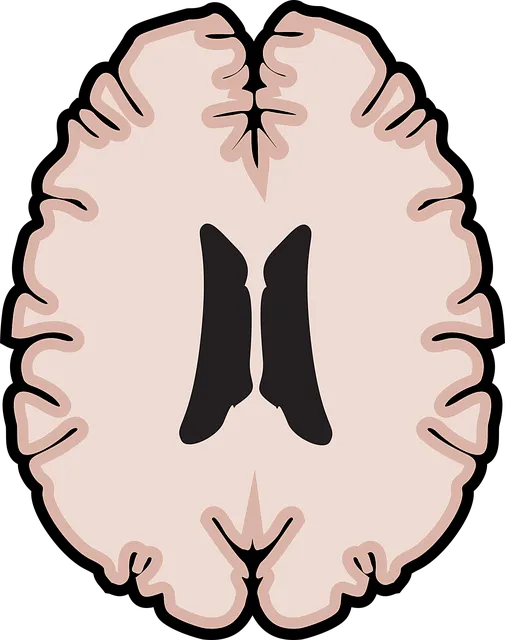Risk assessment and management are crucial for high-quality mental healthcare, especially in inpatient facilities like Kaiser Colorado Springs. This involves evaluating individual mental health risks, environmental hazards, social determinants, and past experiences. By incorporating evidence-based practices, cultural sensitivity, and holistic approaches, Kaiser offers tailored support for diverse populations, improving outcomes and patient-therapist relationships. Comprehensive safety protocols, crisis management training, and integrated strategies ensure effective risk mitigation in inpatient settings, prioritizing physical, psychological, and emotional security.
Risk management planning is paramount for mental health professionals, especially at facilities like Kaiser’s inpatient mental health centers in Colorado Springs. This article delves into crucial aspects of risk assessment, identifying hazards specific to inpatient settings, and developing robust safety protocols. We explore continuous training programs and crisis management strategies essential for mitigating risks effectively. Understanding these components ensures a secure environment for patients and staff, aligning with best practices in modern mental health care.
- Understanding Risk Assessment in Mental Health Care
- Identifying Potential Hazards in Inpatient Settings
- Developing Effective Safety Protocols for Patients
- Continuous Training and Crisis Management Strategies
Understanding Risk Assessment in Mental Health Care

Risk assessment is a cornerstone of effective mental health care, especially for professionals working with vulnerable individuals. It involves a comprehensive evaluation of potential hazards and risks associated with an individual’s mental state and their environment. Mental health professionals in Colorado Springs, such as those at Kaiser, recognize that understanding risk factors is crucial to delivering quality care. By employing evidence-based practices like self-care and cultivating emotional intelligence, they can navigate complex situations with heightened awareness.
These assessments go beyond identifying immediate dangers; they consider the broader context of an individual’s life, including social determinants of health and past experiences. For instance, a mental wellness podcast series production might highlight the importance of cultural sensitivity in risk assessment, ensuring that professionals are equipped to provide tailored support to diverse populations. This holistic approach fosters better outcomes and strengthens the patient-therapist relationship, ultimately enhancing the effectiveness of mental health services offered by facilities like Kaiser in Colorado Springs.
Identifying Potential Hazards in Inpatient Settings

Inpatient mental health settings, like those operated by Kaiser in Colorado Springs, present unique challenges for risk management. Identifying potential hazards is a crucial step in developing effective safety protocols. These environments often house vulnerable individuals experiencing severe psychiatric conditions, requiring careful consideration of various risks. Staffing, patient-to-staff ratios, and the availability of resources are critical factors. Inadequate staffing can lead to overwhelmed professionals, impacting their ability to provide timely care and observe patient behaviors that may indicate escalating issues.
Moreover, the design of these facilities plays a significant role in risk management. Mental Health Education Programs focused on crisis intervention and de-escalation techniques are essential tools for staff. Proper training enables professionals to recognize early warning signs of distress or suicidal ideation, promptly addressing them through evidence-based stress management strategies. This proactive approach, integrated into the facility’s culture, can significantly mitigate risks and contribute to a safer environment for both patients and caregivers.
Developing Effective Safety Protocols for Patients

Mental health professionals, especially those working in inpatient settings like the ones offered by Kaiser in Colorado Springs, must develop robust safety protocols to ensure patient well-being and mitigate risks. This includes establishing clear guidelines for crisis management, emergency procedures, and de-escalation techniques tailored to each patient’s needs. Regular training and updates on evidence-based practices are crucial to keep these protocols effective.
Effective safety protocols should also incorporate a holistic approach, considering not just physical safety but psychological and emotional security as well. This involves fostering an environment of trust, encouraging open communication, and implementing regular risk assessments using tools like the Mental Health Policy Analysis and Advocacy framework. Public Awareness Campaigns Development can play a significant role in educating both patients and staff about recognizing and responding to mental health crises appropriately.
Continuous Training and Crisis Management Strategies

Mental health professionals are tasked with managing intense situations and providing critical support, making continuous training an indispensable aspect of their practice. Regular professional development ensures practitioners stay updated on the latest research, techniques, and best practices in their field. This includes specialized training like social skills enhancement, trauma-informed care, and crisis intervention guidance, which are essential tools for navigating complex patient scenarios. By participating in ongoing education, professionals can refine their abilities to handle high-pressure situations effectively, ultimately enhancing patient outcomes.
Crisis management strategies are a core component of risk mitigation planning. Mental health providers in Colorado Springs, such as those affiliated with Kaiser, should be equipped with comprehensive crisis intervention protocols tailored to various contexts, including inpatient settings. These strategies encompass rapid assessment techniques, de-escalation methods, and effective communication skills to manage acute crises. Regularly reviewing and updating these protocols, coupled with practical drills and simulations, enables professionals to respond swiftly and efficiently during emergences, ensuring patient safety and well-being.
Risk management planning is paramount for mental health professionals, especially those in inpatient settings like those offered by Kaiser in Colorado Springs. By understanding risk assessment, identifying potential hazards, and implementing effective safety protocols, continuous training, and robust crisis management strategies, healthcare providers can create a safer environment for patients while enhancing care delivery. These measures are crucial not just for compliance but also for fostering a supportive and healing atmosphere.






